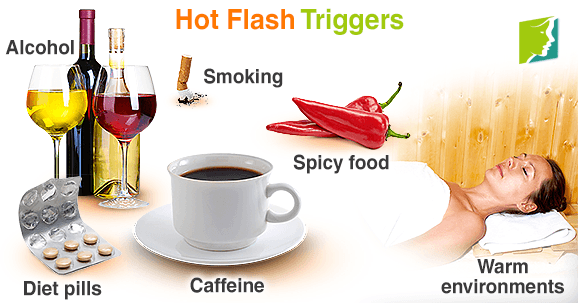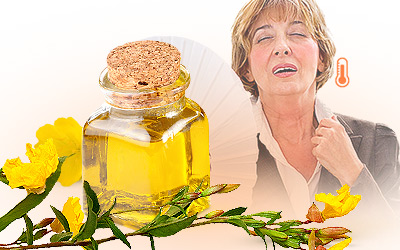Hot flashes are a common side effect of menopause, though they can also be triggered by a number of other conditions. If you are having hot flashes it is important to investigate their cause in order to learn how to manage them effectively.
Causes of Hot Flashes
In addition to the hormonal changes that occur during menopause, there are many environmental factors that can trigger hot flashes. However, as these episodes can sometimes be caused by more serious illnesses it's important to ascertain your specific trigger. Take a look at the following list of causes below to begin determining the cause of your hot flashes.
Menopause. This is the most common cause of hot flashes in women.
Infection. Tuberculosis and bacterial infections like endocarditis can also cause hot flashes.
Idiopathic hyperhidrosis. This condition causes the body to overproduce sweat often resulting in hot flashes.
Medications. Some medications like antidepressants can instigate hot flashes.
Cancer. Some cancers like lymphoma can cause hot flashes. These are usually accompanied by weight loss and fevers.
Hot Flash Triggers
If you remain unsure about what's instigating your hot flashes, take a look at the list below which details various hot flash triggers. Identifying these triggers is central to learning and eliminating the causes of your hot flashes.
- Diet pills
- Alcohol
- Caffeine
- Spicy food
- Warm environments (e.g., hot weather and saunas)
- Smoking
Treatments for Hot Flashes
If your hot flash episodes are caused by menopause, there are several approaches that can be taken to effectively ease and manage them.
Because hot flashes that occur during menopause are the result of hormonal fluctuations it is possible to treat these instances with medications and hormone replacement therapies (HRT). However, whilst generally effective, this treatment does not come without side effects. In order to avoid these many women find that making lifestyle changes and adopting alternative approaches can be just as effective. Eating a balanced diet, taking regular exercise, and maintaining a cool sleeping environment are all simple ways of managing hot flashes.
Alternative approaches can also be used as a way of complementing these lifestyle changes. Herbal supplements, teas, aromatherapy, and acupuncture can all help ease and manage hot flashes.
Consult your doctor for personal advice or click on this link for more information on treatment for hot flashes.
Sources
- Sikon, Andrea and Holly Thacker M.D. "Treatment for Menopausal Hot Flashes". Cleveland Clinic Journal of Medicine. July 2004: 71 (7).
- "Hot flashes ... in January". Canadian Medical Association Journal. 2004: 170 (1).
- Miller, Heather and Rose Maria Li, M.D. "Measuring Hot Flashes: Summary of a National Institutes of Health Workshop". Conference report. Mayo Clinic. June 2004: 79.



